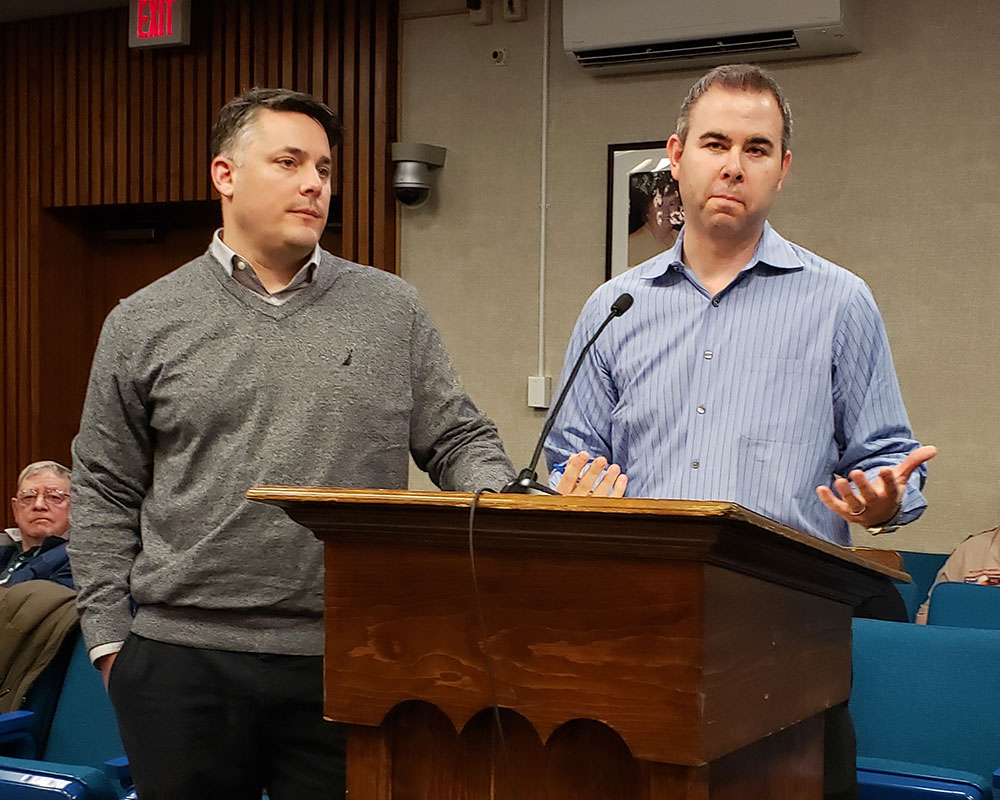A 50-year precedent, requiring retail spaces on the ground floors of downtown buildings, was left at least symbolically intact when Haverhill City Councilors voted to allow additional apartments at 1 Water St.
Councilors Tuesday night allowed Arrowpoint Burlington, owner of the mostly residential building, to convert first-floor space into three additional apartments. In a compromise engineered by Councilor William J. Macek, a less than 1,000-square-foot space facing Water Street will remain a storefront.
“It would stay in conformity with what we’re doing everyplace else in the downtown area,” Macek said.
Councilors voted 6-2 in favor of the plan with members Joseph J. Bevilacqua and Melinda E. Barrett opposing the conversion that would bring the total number of apartments to 167 at the nine-story building. Arrowpoint principals Jay Goldberg and David Lamattina argued they have been unsuccessful in either finding commercial tenants for the space or securing additional parking from the city. Agreeing to the compromise, they said they will still see a net gain of their own parking places by taking nine away from the retail space.
The requirement to have first-floor retail units dates back to the ill-fated Pentucket Urban Renewal Project of the 1960s. After demolishing nearly everything between Wall Street at the river’s edge to Summer Street, and between Main and Mill Streets, the city found few interested in building a new merchandising center. Under pressure to build on what was then called the “dustbowl,” the Haverhill Housing Authority filled the district with senior housing, a nursing home, a strip shopping center and the nine-story apartment building. To save some vestige of storefronts in the once-thriving shopping district, 1 Water St. was required to have ground floor commercial space.
Barrett said she still considers Water Street part of downtown, while Bevilacqua said the ground floor rule has been applied on Washington and Merrimack Streets.
“We have established, as councilors have discussed, a criteria that residential would be permitted on the upper levels, but that we would maintain retail or office on the lower level—the street level—so, in fact, it is a commercial district,” Bevilacqua said.
Councilor Thomas J. Sullivan said he is less concerned about the storefronts than he is about the building’s overall appearance. “There’s a question whether the building looks attractive,” he said.

